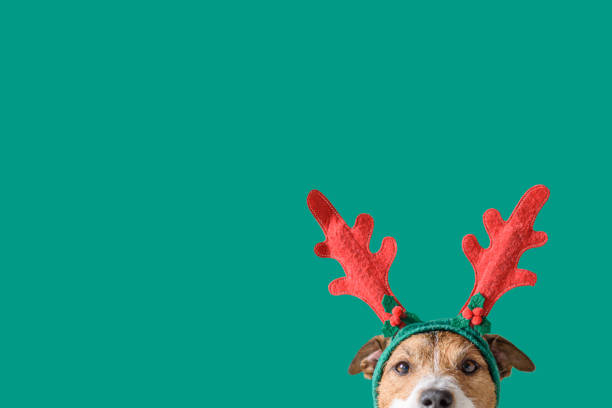
With the holidays comes friends, family, and feasts, but as you prepare for hosting your seasonal gatherings, keep in mind that what is friendly to your two-legged pals might not be so kind to your furry companions on four legs. From decorations to leftovers on the table, our holiday preparedness guide will keep your pets in good spirits—and good health—all season long.
Pet Smart Decorating
Common holiday decorations like mistletoe and tinsel can be dangerous for pets, the former causing gastrointestinal and cardiovascular issues, and the latter causing obstructed digestive tracts, vomiting, dehydration, and possibly calling for surgery if swallowed by cats that can be ultra-tempted by sparkly things. Lillies no matter the season, though popular for decorating during the holidays, can cause kidney failure in felines, while holly can cause nausea, vomiting and diarrhea—a whole slew of issues you certainly don’t want to deal with while the oven is cooking up holiday dinner and guests need tending to.
And, we can’t forget the Christmas tree. Whether real or artificial, these trees can prove hazardous to pets and need to be securely attached so that they don’t tip over and injure pets in the fall. If you’re setting up a real Christmas tree, making sure that the tree is secured will also prevent any water that contains fertilizer or bacteria from spilling and harming pets. Ornaments should be placed high enough that pets can’t swat and swipe them down, leading to possible intestinal blockages or toxicity if swallowed. For Christmas lights, make sure that wires are also out of reach or covered with PVC pipe to prevent electric shock.
The Holiday Menu
Holiday food is tempting for humans and pets alike, but the wrong foods can cause more than an upset stomach for your furry friends. Chocolate is a well-versed no-no for pets, but so is xylitol, a common sweetener found in candy, chewing gum, and baked goods. You also want to keep pets away from spicy foods and bones, as well as fatty foods like scraps of seasoned turkey or turkey skin as even small bits can cause pancreatitis. Other popular holiday leftover scraps like gravy, meat fat, raisins, and grapes should also be kept away from pets, as well as dishes that contain garlic, chives, and onions as they can destroy red blood cells and cause anemia. But that doesn’t mean your pets can’t enjoy in a little holiday treat exuberance, too— feel free to provide your pet with a pet-sized feast of their own: raw carrots and broccoli, cooked, unseasoned, and skinless white meat turkey, and plain pumpkin (not the pie filling) are excellent and safe options.
Paws and Ends
Like other holidays that can become rowdy with noise and celebration, these sounds might prove anxiety-inducing for some pets. While you’ll be busy tending to friends and family, make sure that you lock away all medications before the festivities begin. For the time when you’ll be preoccupied with holiday festivities, creating a peaceful room away from guests with water and a place to lay down, or a crate to hide away in, is a proactive way to make sure that your pet remains safe and peaceful throughout the day. Making sure these rooms are escape proof with gates or doors is also important if celebrations culminate in confetti poppers or other loud sounds that are usually uncomfortable for skittering pets.
If you’re afraid that your pet might have consumed something on the do-not-consume holiday list, VetTriage is here to help. VetTriage veterinarians are available 24/7/365 via video televet sessions to help with any pet emergency or general animal health questions.





